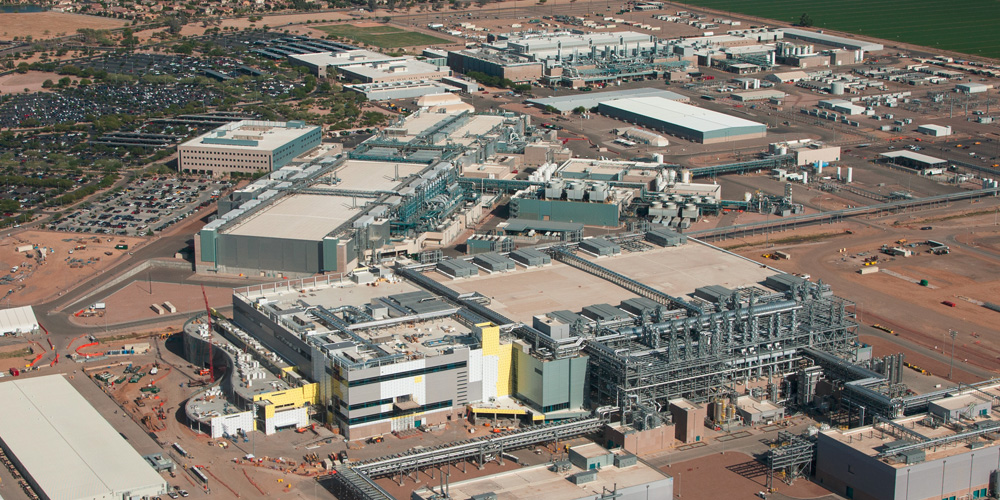Billions from the CHIPS Act is soon to begin flowing with Samsung, Intel and TSMC set to benefit
Made in the USA.

The CHIPS Act was signed into law in August 2022. Its aim is to boost US based semiconductor manufacturing, and not just for commercial reasons, but for broader strategic reasons including the desire to reduce reliance on manufacturing in Asia. Some of the money allocated to woo chipmakers onto US soil is soon to flow, with Samsung, Intel and TSMC set to receive billions in grants and subsidies.
Bloomberg reports that Samsung is poised to receive $6 billion in federal funding, TSMC is set to secure over $5 billion while Intel could receive as much as $10 billion. All three companies have US based fabs planned or under construction.
Samsung is building a 4nm EUV manufacturing facility in Taylor, Texas, which is due to begin operations in 2025. The fab was originally estimated to cost around $17 billion, but Reuters reports the new fab will cost as much as $25 billion, reportedly as a result of inflation and higher labor costs.
It would be reasonable to expect Samsung to use the incoming funds to offset that cost increase, but Bloomberg's sources indicate Samsung is planning to expand beyond its Texas operations, though for now, just what that entails remains unknown.

Best gaming PC: The top pre-built machines.
Best gaming laptop: Great devices for mobile gaming.
Intel is building facilities near Columbus, Ohio. It's also expanding its Arizona facilities and in January it opened its Fab 9 plant in New Mexico. The Ohio plant has been subject to several delays, so the incoming CHIPS money will be a welcome shot in the arm. According to the Wall Street Journal, the delay is in part due to the slow rollout of CHIPS money.
As for TSMC, the $5 billion it has earmarked is just a fraction of the company's planned $40 billion US investment. Its Arizona facility is under construction, but has faced delays. TSMC Chairman Mark Liu told CNN it needed to review “how much incentives … the US government can provide.”
I don't know if I'd call that a shakedown, but it sure sounds like one.
Keep up to date with the most important stories and the best deals, as picked by the PC Gamer team.
Now that the finds are set to flow, it will be interesting to see just how the chipmakers respond. Billions of dollars in CHIPS grants and loans will be welcomed, but compared to the overall cost of these bleeding edge facilities, one begins to wonder if all that money will be enough incentive for chipmakers to continue investing in the long term.

Chris' gaming experiences go back to the mid-nineties when he conned his parents into buying an 'educational PC' that was conveniently overpowered to play Doom and Tie Fighter. He developed a love of extreme overclocking that destroyed his savings despite the cheaper hardware on offer via his job at a PC store. To afford more LN2 he began moonlighting as a reviewer for VR-Zone before jumping the fence to work for MSI Australia. Since then, he's gone back to journalism, enthusiastically reviewing the latest and greatest components for PC & Tech Authority, PC Powerplay and currently Australian Personal Computer magazine and PC Gamer. Chris still puts far too many hours into Borderlands 3, always striving to become a more efficient killer.

